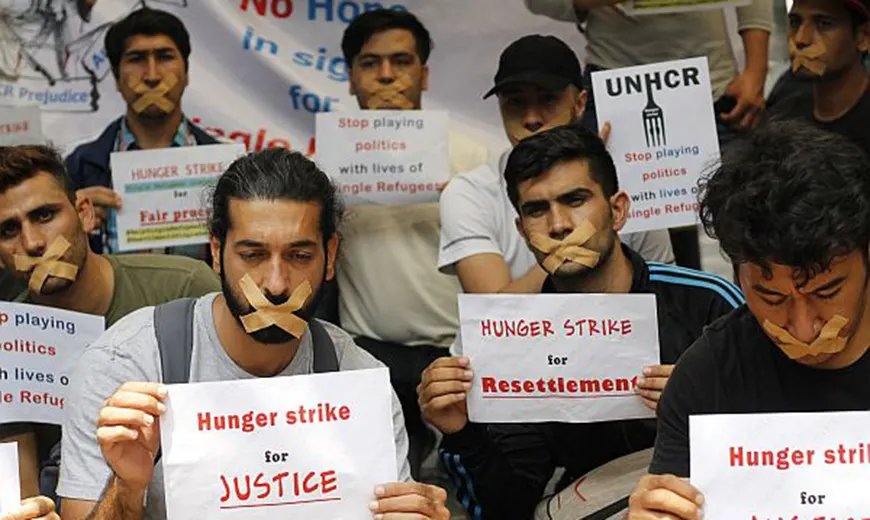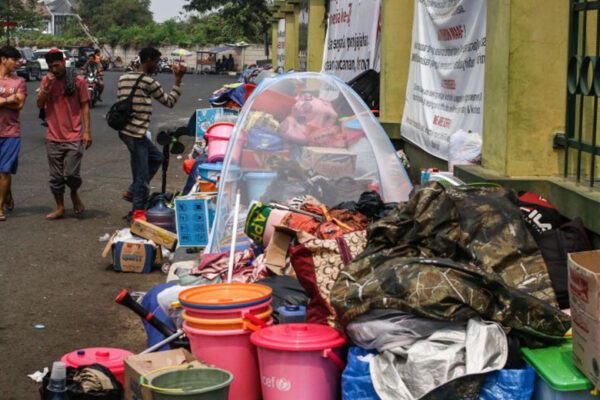Evicted and arrested: Refugees in Indonesia under pressure
Australians have kept their attention focused on Nauru and Papua New Guinea, but the impact of Australia’s border policies in Indonesia is thoroughly overlooked.
On Thursday 29 August, twenty-six refugees were arrested in Makassar, Indonesia after a peaceful demonstration in front of the Australian consulate. Around four hundred had gathered to protest against Australian border policies and their long stay in Indonesia. It’s the day before the arrests, and I’m sitting on a large nylon protest banner in a park in Makassar, South Sulawesi, listening as six refugees tell me about conditions in the local immigration detention center. They speak with urgent intensity, firing one horrific story after another.
Yousif Ibrahim Ahmad Osman arrives late. He’s tall and lean, moves rapidly and goes straight to the point. Pulling clothes and pills out of his backpack and scattering them across the banner, he explains that he carries these supplies wherever he goes. He could find himself behind bars at the end of any given day.
Twenty-four hours later, Yousif is still free, but most of the other men are locked up. The length of their detention is indefinite. This is the sixth consecutive week of simultaneous protests in six cities across Indonesia. Demonstrators in Makassar conveyed their ‘desperate situation’ to the Australian consulate in a letter that links their growing discontent to Australian border policies, including boat turn-backs. They argue that refugees in Indonesia are ‘being singled out to serve as an example and a deterrent.’
The letter requests the immediate repeal of policies that refuse to resettle any refugees who arrived in Indonesia after July 2014 and that limit the number of resettlements from Indonesia to Australia. It also draws attention to the restrictive conditions refugees are living under, which have led to seven suicides in the last five years and many more attempts.
There are almost 14,000 refugees and asylum seekers in Indonesia. Many have been there for up to seven years, and some for as long as nine years. In 2016, UNHCR informed all refugees and asylum seekers in the country that they will probably never be resettled.
Indonesia has not signed the UN Refugee Convention, and so refugees are denied the rights to work, free movement, formal study and anything that requires an ID card.
‘We are raising our voices,’
The protesters plead in exasperation. Hunger strikes go unnoticed, and weeks of demonstrations are ignored by media.










